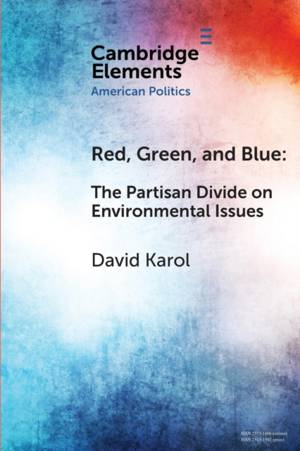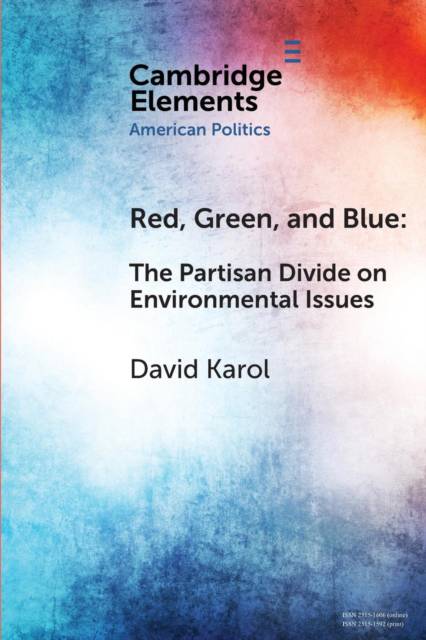
- Afhalen na 1 uur in een winkel met voorraad
- Gratis thuislevering in België vanaf € 30
- Ruim aanbod met 7 miljoen producten
- Afhalen na 1 uur in een winkel met voorraad
- Gratis thuislevering in België vanaf € 30
- Ruim aanbod met 7 miljoen producten
Zoeken
Omschrijving
This Element explores the growing party divisions on the environment in the United States. It draws upon quantitative and qualitative data from several decades of national and state politics. The study contributes theory to the party position change literature, showing that interest groups change parties, but in turn are changed by them. In the 1970s the characteristics that predicted voters' attitudes on the environment also predicted legislators' votes. Yet as environmentalists and their opponents aligned with parties, officials had incentives to set their own views aside to represent new party constituencies. Influence flowed in both directions, however. Environmentalists were drawn to the Democrats as they confronted GOP-linked business lobbies. Environmentalists' resulting need to cooperate with other groups close to Democrats led them to change their positions. Although environmentalists were long unwelcoming to minorities, they embraced immigration reform, allied with unions on trade, and worked with civil rights lobbies and labor in battles over judicial nominations. The Element concludes with discussion of how the current party alignment on the environment might change.
Specificaties
Betrokkenen
- Auteur(s):
- Uitgeverij:
Inhoud
- Aantal bladzijden:
- 75
- Taal:
- Engels
- Reeks:
Eigenschappen
- Productcode (EAN):
- 9781108716499
- Verschijningsdatum:
- 25/04/2019
- Uitvoering:
- Paperback
- Formaat:
- Trade paperback (VS)
- Afmetingen:
- 152 mm x 229 mm
- Gewicht:
- 136 g

Alleen bij Standaard Boekhandel
+ 63 punten op je klantenkaart van Standaard Boekhandel
Beoordelingen
We publiceren alleen reviews die voldoen aan de voorwaarden voor reviews. Bekijk onze voorwaarden voor reviews.











